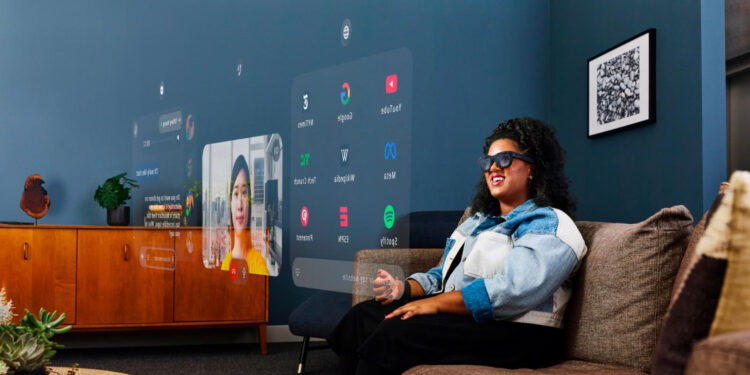Meta has presented an exciting project with its prototype of the augmented reality glasses "Orion" that has the potential to change the world of AR devices. The company believes that Orion could have a similar significance for AR technology as the AirPods have for wireless audio. But what is really behind these glasses, and what challenges and opportunities do they bring with them?
Augmented reality, or AR for short, is one of the most promising technologies of our time. It connects the real world with digital content and thereby opens up completely new possibilities - from navigation and entertainment to practical applications in everyday life. With Orion, Meta wants to develop AR glasses that are realistic and user-friendly. The prototype is a first step in this direction, but the vision behind it goes far beyond what we have seen so far.
The prototype: Orion in detail
In September, Meta showed an early prototype of the Orion AR glasses for the first time. The description "the look and feel of normal glasses" seemed rather optimistic. In fact, the prototype is slimmer and more portable than many other AR devices, but still far from an everyday look. For technology enthusiasts, however, one thing is clear: the mere fact of integrating so much AR technology into such a small format is impressive. Compared to competing products, such as Xiaomi's or Oppo's concepts, Orion stands out with a more advanced display and more sophisticated technology. Similar to Apple's Vision Pro, Meta shows that it's not just about feasibility, but also about quality and user experience. However, Orion is currently still in the prototype phase, and the production costs of up to $10,000 make it clear how far the road to a market-ready product is.
The Vision: AirPods of AR
Joshua To, Meta’s wearables boss, compares the Orion glasses with the AirPods. But what exactly does he mean by that? The idea is to create a device that you can put on when you need to and take off again without any problems - a simple and natural companion for your everyday life. It's not about pulling you into a virtual world, but rather expanding your real world in a meaningful and targeted way. The comparison with the AirPods makes sense when you consider how these headphones are used: you put them on when you want to listen to music or make a phone call, and take them off as soon as you want to concentrate on your surroundings again. This flexible and unobtrusive use is also the goal for Orion.
challenges and competition
As impressive as the prototype is, Orion faces major hurdles. The technology must be further miniaturized and made more affordable at the same time so that it can be widely accessible. Currently, Meta is still at a stage that is more reminiscent of research and development work than a market-ready product. Competition also plays a decisive role. While Meta shows its progress publicly, Apple works on similar projects behind closed doors. This difference also reflects the different philosophies of the two companies: Meta relies on transparency and dialogue with the public, while Apple relies on perfection and surprise.
Meta's goal with Orion: expand reality, not replace it
The Orion glasses are a promising project that shows how far AR technology has already come. Meta has a clear vision: glasses that complement our reality without replacing it. The comparison with the AirPods is not just a marketing trick but an indication of how simple and intuitive the device should be in the future. Despite all the challenges, Orion is an important step towards a future in which augmented reality becomes part of our everyday lives. It remains to be seen whether Meta will manage to bridge the gap between vision and reality. One thing is certain, however: Orion will have a decisive influence on the development of AR devices. (Image: Meta)





